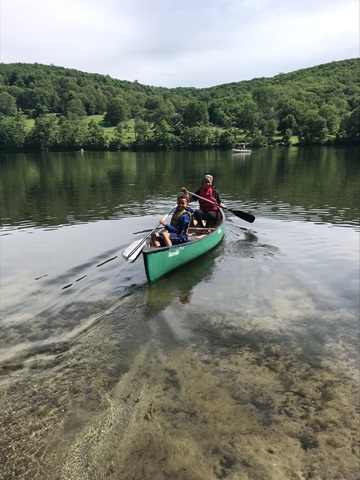Manually Propelled Vessel Safety Rules

- Wear your Life Jacket (PFD)! Is it the proper size and in good condition? There must be a wearable Life Jacket aboard for each person. From October 1st through May 31st, you must wear a Life Jacket (state law). All children 12 and under must wear a Life Jacket.
- Don’t stand up in a manually propelled vessel, such as a canoe, kayak or rowboat.
- Always paddle directly into or away from the wake of larger boats.
- If you CAPSIZE, stay with the vessel. If you are in a strong current or white water, float down river feet first and toes up with the vessel ahead of you.
- Do not drink alcohol before or while operating a vessel. Alcohol affects balance, coordination, and judgement.
- For more stability in rough conditions, kneel on the bottom instead of sitting on the seats.
- The most experienced paddler should take the stern position.
- Know the conditions before you set out. Always paddle within your abilities.
- Load the manually propelled vessel evenly, fore and aft and side to side.
- Be sure that you have the right boat for the conditions
- Wear proper clothing, including a hat. If you end up in the water, do not remove your clothes. They help you float and protect you against hypothermia.
- Stay away from low head dams. They are extremely dangerous from both up and down stream.
- Rough water, white water, or rapids are no place for beginners. Always wear a solid, correctly fitted helmet when white water canoeing or kayaking.
- Paddle near shore, out of channels.
- Paddle with a partner.
- Always leave a FLOAT PLAN with someone ashore. Be specific about where you plan to go and when you will be back. Be sure to report back in when you return.
Major Causes of Boating Accidents:
- Improper loading or overloading
- Disregard for weather or water conditions
- Improper lookout
- Capsizing or falling overboard
- Failure to wear a life jacket (PFD)

